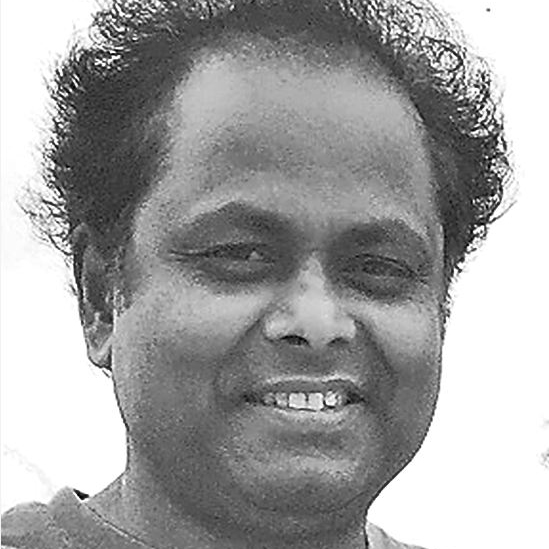Columns
America’s D-Day
The country that preached democracy to the world seemed, for a while, to be losing its own grip on the system at home.
Pramod Mishra
‘Today [December 14, 2020] is America’s D-Day,’ so said Thomas Friedman, the New York Times foreign affairs columnist, known for such bestsellers as The Lexus and the Olive Tree (1999) and The World Is Flat (2005), to CNN’s Chris Cuomo. On this day, two momentous events occurred after the stresses and strains of the global pandemic that has claimed 300,000 American lives and of the Trump presidency that has allegedly shaken the American democratic system, especially since the November presidential election, whose results President Trump has tried everything to nullify. Like the original D-Day in 1944, when the American forces landed on the beaches of Normandy that decisively turned the fortunes of the Second World War against Hitler’s Nazism and Mussolini’s fascism, December 14, too, was a decisive day. It was the day when the United States Electoral College cast majority votes in favour of Joe Biden and Kamala Harris and the first batch of coronavirus vaccines reached their destinations in cities across America (the first recipients being healthcare workers).
Both these events—one political and the other health and science related—had challenged American credibility as a bastion of democracy and the leader of science and technology. Like any third world country, America had become helpless since March, confronted by the Covid-19 crisis. The vulnerability of its purportedly most advanced healthcare system had been exposed when the world witnessed that Americans were dying left and right and the entire scientific infrastructure of hundreds of world-class universities and dozens of private and government labs couldn’t do anything about it. Or, so it seemed at the time.
In the same way, Donald Trump—once elected president not by a majority of popular votes but by the Electoral College—had begun breaking norms of decency and arousing the baser instincts in Americans, culminating in his refusal to accept the November presidential election and attempts through personal pressure and legal challenges to overturn the presidential election results. The over 200-year-old American democratic system seemed helpless. The same way that the pandemic had held life hostage the world over, a sitting president’s refusal to accept the election result reminded one of the tin-pot dictators, all over the world during the Cold War era, who had by means fair and foul negated the popular will of the people and clung to power.
Indeed, in the past few decades, a number of writers and economists had begun forecasting the end of American domination. If the 20th century was the American because of the country’s decisive role in World Wars I and II, the 21st century, they predicted, would see American power slipping away to other regions, especially Asia. Thus, Fareed Zakaria, a CNN journalist who happens to hold a PhD in political science from Harvard, had published The Post-American World (2008), predicting the rise of countries like India and China as parallel economic and political powers. The Singaporean diplomat and business school dean Kishore Mahbubani had also in several of his works predicted the decline of America’s power and the rise of Asia, calling this age the Asian Century.
Mighty America’s helplessness in the face of the pandemic astonished the world. How can the world’s leading innovator in science and technology and entrepreneurship become so vulnerable, so helplessly exposed to the ravages of the coronavirus pandemic—so much so that the governor of New York would publicly make a cry for help for his state? Similarly, the more than 200-year-old bulwark of democracy seemed on the verge of collapse when faced with the tricks, tongue and showmanship of its billionaire president. The state that preached democracy to the world seemed to be losing its own grip on democracy at home.
In my April 2020 column, I had said, after expressing my astonishment at the speed with which the pandemic had spread panic among Americans, ‘If the distance was far, America invented the automobile. If the automobile proved inadequate to overcome distance, how about airplanes? Similarly, faced with this unprecedented virus and its mercurial nature of hiding and spreading, how long will it be before America makes a vaccine and anti-viral drug?’
Well, it has made the vaccine, and the first shots have gone into American bodies to build an army to defeat the virus. This is the beginning of the end of the pandemic.
In a more recent column, I had also said, ‘American democratic institutions have deep roots and have stood strong for over 200 years through a Civil War, domestic upheavals, two World Wars and a Cold War. It will not allow any tin-pot dictator to rise and hold power by defrauding a genuine election’.
And the Electoral College vote for the Biden-Harris presidency has reaffirmed American democracy once again.
But both achievements have a crucial insight to offer. They embody in them a very subtle message that Americans, and monocultural ideologues all over the world, would do well to keep in mind. It wasn’t just the choice of vice-president but the rainbow coalition that Joe Biden built that was able to defeat Trump’s monoracial dog-whistling. And the vaccine against the world’s worst pandemic was made possible because of a Turkish-German couple’s scientific discoveries (in the case of the Pfizer-BioNTech vaccine) and the leadership of an African American woman scientist, Dr Kizzmekia Corbett (Moderna vaccine). The message is clear: the world’s problems will find solutions and see D-Days only when people of all hues and creeds can work together for a common goal and common humanity. A world of harmony and peace is possible when we not only accept but celebrate differences.




 11.12°C Kathmandu
11.12°C Kathmandu















